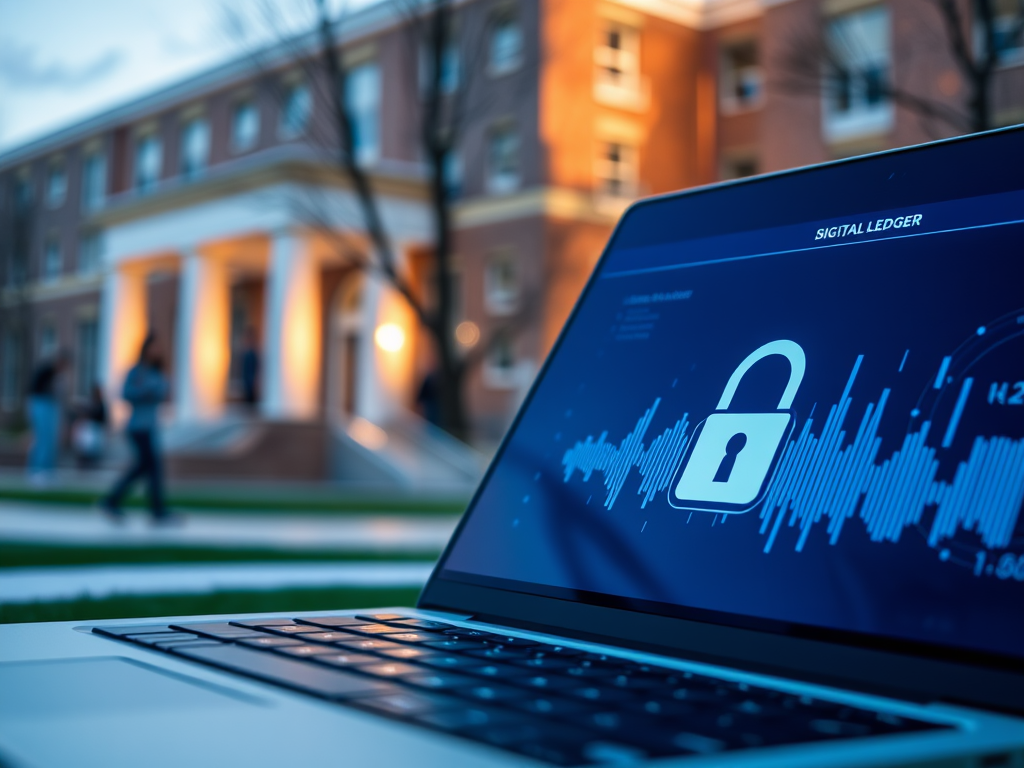Blockchain technology is revolutionizing various sectors across the globe, and Dubai’s education sector is no exception. By providing transparency, security, and efficiency, blockchain is enhancing the educational landscape in Dubai. This article delves into how blockchain transforms academic records, enhances credential verification, and facilitates innovative teaching methodologies. We will explore specific applications, benefits, and the challenges of implementing blockchain in education.
Transforming Academic Records

One of the primary roles of blockchain in Dubai’s education sector is the transformation of academic records. Traditional methods of record-keeping are often susceptible to fraud and discrepancies, which can undermine the integrity of educational institutions. By utilizing blockchain technology, schools and universities can create immutable records that guarantee the accuracy and authenticity of academic credentials. This transformation involves several key aspects:
- Immutable Record Keeping: Records stored on a blockchain cannot be altered or deleted, ensuring durability and reliability.
- Decentralization: This eliminates the need for a central authority, allowing students and institutions to access their records directly.
- Real-Time Updates: Institutions can update records immediately, making it easier to keep track of students’ achievements.
Enhancing Credential Verification

Credential verification is another critical application of blockchain in education. The traditional verification process can be time-consuming and often prone to errors. Blockchain simplifies this process by allowing third parties, such as employers or further educational institutions, to verify credentials seamlessly and securely. Key benefits of enhanced credential verification include:
- Speed: Credential checks can be completed in minutes instead of days, speeding up hiring processes for employers.
- Cost-Effective: Reducing the need for extensive background checks can save considerable resources for institutions and employers.
- Trust: Blockchain provides a trustless ecosystem where credentials are verified without the need for intermediary authentication.
Innovative Teaching Methodologies
Blockchain technology also has the potential to introduce innovative teaching methodologies in Dubai’s education sector. With the rise of decentralized platforms and smart contracts, educators can explore new ways to engage with students. Here are some innovative methodologies being considered:
- Decentralized Learning Platforms: Students can access a wider range of resources and courses without being restricted to traditional classroom settings.
- Micro-Credentialing: With blockchain, students can earn micro-credentials for specific skills, promoting lifelong learning.
- Gamification of Learning: Utilizing blockchain for reward systems can increase student engagement and motivation.
The Challenges of Implementing Blockchain
Despite the promising applications of blockchain in Dubai’s education sector, several challenges must be addressed before its widespread adoption. These challenges include:
- Regulatory Compliance: Navigating the legal landscape surrounding blockchain can be complicated, particularly in education.
- Technical Expertise: There is a shortage of professionals knowledgeable in blockchain technology, which can hinder development and implementation.
- Data Privacy Concerns: Ensuring the privacy of student data while maintaining transparency is a delicate balance to achieve.
Conclusion
In summary, blockchain technology plays a pivotal role in revolutionizing Dubai’s education sector through improved record-keeping, enhanced credential verification, and innovative teaching methodologies. While the potential benefits are substantial, addressing the challenges associated with implementation is of utmost importance for sustained success. As Dubai continues to position itself as a leader in technological advancement, the synergy between blockchain and education can set a precedent for others around the world to follow.
Frequently Asked Questions
1. What is blockchain technology?
Blockchain is a decentralized and distributed ledger technology that securely records digital transactions across multiple computers. It ensures that records are tamper-proof and accessible to authorized users.
2. How is blockchain used in education?
Blockchain is used in education primarily for enhancing record-keeping, improving credential verification processes, and enabling innovative teaching methods such as micro-credentialing and decentralized learning platforms.
3. What are the benefits of using blockchain in education?
The benefits include increased transparency, reduced fraud, efficient credential verification, lower administrative costs, and the potential for personalized and engaging learning experiences.
4. What challenges does blockchain face in education?
Challenges include regulatory compliance, the need for technical expertise, data privacy concerns, and the initial costs of implementing blockchain technology.
5. How can blockchain support lifelong learning?
Blockchain supports lifelong learning by allowing individuals to earn micro-credentials for specific skills, enabling them to demonstrate ongoing education and adapt to changing job market demands.
